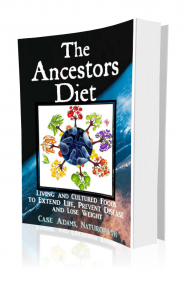Raisin Snacking Reduces Blood Pressure and Risk of Diabetes
Snacking on raisins is more than a nutritious habit: It also can reduce blood pressure and reduce incidence of diabetes by reducing glycemic burden.
In this article
Raisin snacking tested
Researchers from the Medicine and Clinical Nutrition department at the University of Kentucky tested 46 people who were tested for twelve weeks. Of the 46, 15 people snacked on typical snacks while 31 of the adults snacked on raisins for three months.
Before, after and every four weeks during the 12 week trial, the researchers tested blood pressure, post-eating glucose levels and took blood samples to test glycated hemoglobin levels – also called AbA1c.
The researchers found that post-eating glucose levels dropped by 13 milligrams per deciliter of blood (mg/dL). The raisin group also had a significantly lower HbA1c levels.
The researchers also found that the raisin-snacking group had significantly lower systolic and diastolic blood pressure. Their systolic levels reduced between 6 and 10 mmHg – a significant change.
The researchers concluded simply:
“Regular consumption of raisins may reduce glycemia and cardiovascular risk factors, including blood pressure rate.”
Other studies confirm glycemic effects and lowered obesity risk
This is not the first study finding that eating raisins will reduce the risk of diabetes and other glucose issues.
A study from the University of Toronto studied 52 children in two different trials. They fed the children different foods and then tested their appetites. They found that of the different foods, raisins reduced the consumption of a test food – in this case, pizza – more than the other snack foods.
An earlier study from the University of Toronto also found that kids who snacked on raisins had a lower resulting food intake outside of the raisins. They found that “grapes lowered appetite compared to all other snacks.” This means their bodies were more satisfied with the raisins.
In other words, raisins can help reduce the risk of childhood obesity. Who would have thought?
A study that analyzed the 2003-2008 U.S. National Health and Nutrition Examination Survey (NHANES), which followed 9,622 kids and 1,251 adults found that those who regularly ate grapes, raisins or 100% grape juice – as compiled via interviews – had healthier lifestyles in general.
Rasins have many health benefits
There are several reasons why raisins have this healthy effect upon glycemic control and blood pressure. The first is that raisins contain a significant amount of concentrated phytonutrients and fiber.
A cup of raisins will contain six grams of dietary fiber. They will also contain omega-3 fatty acids, and reasonable amounts of vitamin K and B vitamins.
One of raisins’ biggest advantage is their generous levels of minerals such as calcium, magnesium, potassium, copper and manganese.
But let’s not forget raisins’ resveratrol levels. Because much of the grape’s resveratrol content lies within the skin, eating whole raisins render good content of resveratrol compared with many other sources. In fact, this is likely the reason for the blood pressure reduction, as other studies have shown resveratrol has this effect.
Raisins also contain anthocyanins, tannins and catechins – which have been found to help prevent cancer and increase immunity.
REFERENCES:
Anderson JW, Weiter KM, Christian AL, Ritchey MB, Bays HE. Raisins compared with other snack effects on glycemia and blood pressure: a randomized, controlled trial. Postgrad Med. 2014 Jan;126(1):37-43. doi: 10.3810/pgm.2014.01.2723.
Patel BP, Luhovyy B, Mollard R, Painter JE, Anderson GH. A premeal snack of raisins decreases mealtime food intake more than grapes in young children. Appl Physiol Nutr Metab. 2013 Apr;38(4):382-9. doi: 10.1139/apnm-2012-0309.
McGill CR, Keast DR, Painter JE, Romano CS, Wightman JD. Improved diet quality and increased nutrient intakes associated with grape product consumption by U.S. children and adults: National Health and Nutrition Examination Survey 2003 to 2008. J Food Sci. 2013 Jun;78 Suppl 1:A1-4. doi: 10.1111/1750-3841.12066.
Patel BP, Bellissimo N, Luhovyy B, Bennett LJ, Hurton E, Painter JE, Anderson GH. An after-school snack of raisins lowers cumulative food intake in young children. J Food Sci. 2013 Jun;78 Suppl 1:A5-A10. doi: 10.1111/1750-3841.12070.
















